THE STORY OF A LIFE SPENT IN THE SERVICE OF HUMANITY
Dr Eduard Schellhammer,
Dedicated to freeing humanity.
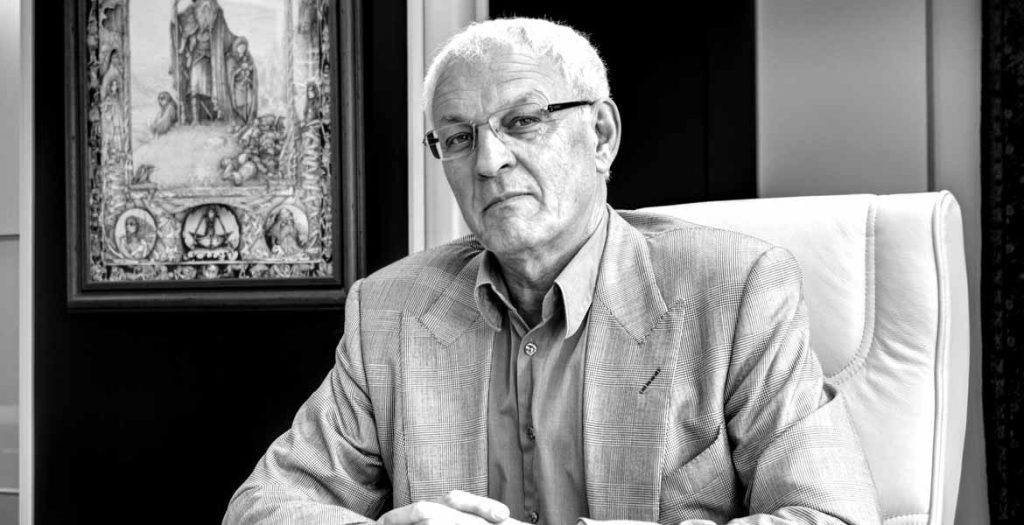
This is not a pity story, nor is it a tale of failure or success. Instead, it’s a story about a boy much like any other, gifted with a vision that transcends the mere sequence of life’s events. He realized that life encompasses more than just a sequence of accidents. He understood that each one influences our life’s journey and leaves footprints on the world around us and our inner selves.
CHILDHOOD
The tale commences in Luzern on November 14, 1947, at precisely 2:40 in the morning when Dr. Eduard was born and given the name Eduard Schellhammer. Later, his friends simply called him Edi.
He always demonstrated a sense of bravery. Throughout his life he enjoyed traveling, meeting new people, spending time with friends, and in was endlessly searching for knowledge.
He has especially fond memories during Primary school of his time spent fishing and contemplating life on the banks of the river Reuss. On one occasion, so immersed was he in my contemplations that I was pulled into the river by an especially large catch, Luckily, to be saved by a passer-by. Fearless, even at this early age he was more interested in still trying to catch the fish that had pulled him in than swimming to shore.
He also has fond memories of Christmas. Remembering when his mother had prepared the wonderfully enormous Christmas tree in their living room which she had carefully decorated with what seemed like a thousand dazzling fairy lights. He vividly remembers his excitement when his father gifted him the electric train set that he so desperately had pleaded for all that year.
ADOLESCENCE
In the summer, when he was 16 he escaped to France, where he learned French, and studied at the Alliance Francaise in Paris, a general preparative boarding school. Classes started early in the morning at 7 am-12 pm then again on the afternoons. He worked every evening cleaning the kitchen in the school refectory near the cathedral, in return they paid the students pocket money.
To this day he still maintains contact with many of his friends that he made there and by some stroke of luck, he made friends with one of the boys in his class who turned out to be the son of an aristocratic family. They had a history of cotton farming in India and owned a huge mansion about 40 km from Paris. His friend invited him to visit regularly, to such an extent that you could say he was unofficially adopted. As “Swiss Edi”. Although his friend was the youngest in a family of five children, he was the only person fortunate enough to be allowed to dine beside “madame” while butlers served them with trolleys of food. He admits it was at that point one of the happiest times of his life!
However, a year later the police found him and took him back home to his mother, who forced him to stay in Luzern to complete his schooling.
A little more obedient now I did stay and continued my studies. I worked tirelessly from 1964-1970. So, even though I had to learn Latin, Ancient Greek and philosophy. I started my mandatory military service in in Luzern starting in 1966 and continued to work after school, as I never got a cent from my family. I saved all my hard earned cash to travel even further and whenever I was able. Paris was a prime destination to maintain my friendships that I had forged there. 6 years later my hard work paid off and I passed the “Matura” with flying colours.
TRAVELING
In 1966, at the age of 19, Dr. Eduard crossed the Atlantic to visit the U.S., flying to the Big Apple. He explored the streets of New York City for two weeks until he stumbled upon the Ghetto, where he was picked up by the police, shocked at his presence in such a dangerous neighbourhood for a young, white Swede. They couldn’t believe he ventured into that area.
During his time in the U.S., Dr. Eduard visited his uncle in Detroit and stayed for two months with his large, happy family. Although they tried to convince him to enrol in a local high school and finish his education, he had other plans.
Feeling invincible after surviving the Ghetto, he took a Greyhound coach to Canada and then down to San Antonio, crossed the border to Mexico, and travelled to Mexico City. There, he visited Madame’s eldest son, a respected professor and priest. Together, they embarked on a 600km bus journey south to Las Chapas and Oaxaca, one of the poorest regions of South America. The three-day trip by Mexican transport, reminiscent of stereotypical images from Nepal or India, was comical.
However, this journey wasn’t the best experience; the astounding level of poverty led to the worst sickness he had ever experienced. Eventually, his friend had to take him to a hospital, more accurately described as a breeding ground for germs and viruses, with crowded corridors and minimal medical care.
Despite the challenges, Dr. Eduard continued his travels to various places, including Marseille, Frejus, Egypt, Germany, Berlin, Tuscany, Tessin, Greece, Provence, Holland, and Scandinavia. He even met the pope and followed protocol by kissing his ring. Despite his extensive travels, he retained his love for the Swiss Alps and skiing. He applied to study at the University of Freiburg but needed to complete his military service concurrently with high school.
HIGHER EDUCATION
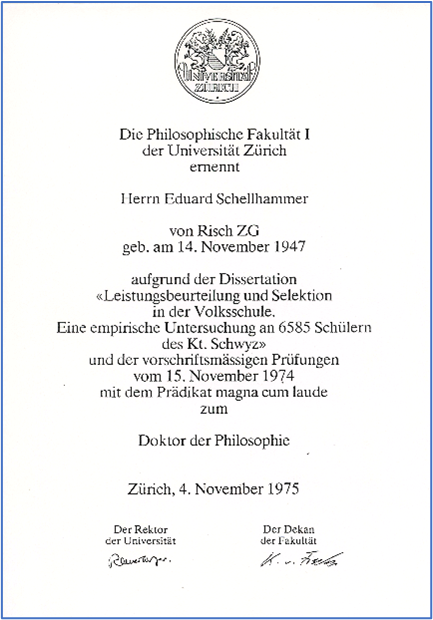
Even though he needed to continue his military service until 1974, when he became an officer. He started his university degree in 1970 in Educational Science and Anthropology Psychology, combined with Computer Science at the University of Freiburg, and graduated in 1973. His dissertation was entitled “Educational Needs of the Elementary School Teacher”. He made a lasting impression on the university director who recognised his potential and was so impressed with his dedication that he encouraged him to delve into the field of ‘automation.’ so under his guidance, he was sent to Kiel to master IT programming and multiple data analytics. This laid the foundation for what is now known as electrical engineering and computer science. After this course he was the only person in Switzerland at the forefront of this upcoming field, what we now know as AI.
After completing his degree, He was invited to study Education in the future in Zurick in 1974 so he thought this was an obvious choice to complete his Ph.D. there. Here he completed his dissertation entitled “Performance Assessment and Selection in Primary School”
AN INQUISITIVE MIND
His academic pursuits led me to the discovery of The Club of Rome which was founded in 1968. They subsequently published a controversial report in 1972 entitled “The Limitations of Growth”.
This report contained computer simulations that suggested that economic growth could not continue indefinitely because of resource depletion. Even then this report correctly identified the dangers that threaten human existence on this planet.
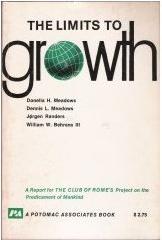
Because he was studying automation at that time, their ideas fascinated him and caused him to ponder the essence of humanity and our future on Earth.
He came to realise that society is generally governed and ruled with deception, by fakes, liars, and cheats.
That people let themselves be deluded by false religions and ideologies, and the education system was seriously flawed. Even three decades ago,
Europe and especially Switzerland was amid a dark age and faced challenges that were not being addressed. All he could do to alleviate his conscience was to teach a variety of academic programs to enlighten his students. He came to the conclusion that all of humanity needed a reboot!
PROFESSIONAL CAREER
After completing this challenging training, his dedication paid off, and he earned a prestigious position and collaborated with Dr. Urs Isenegger resulting in the publication of eight research papers on pedagogical topics. These publications covered a range of subjects, including critical decision-making situations in the teaching profession. Performance Assessment and Selection in Elementary school, Home Education as a Field of Research, and the characteristics of the research field of home education and their significance for social-educational field research. He also published a survey as part of the Freiburg curriculum reform with Professor Dr. Frei. and published 5 books for positive living.
Although still completing his studies, from 1970-1986 he worked as a member, secretary, or president in various commissions on social issues and future research.
From 1971 to 1974 he worked on projects for school reform, educational research, parent education, curriculum innovation, and teacher training. As a member of the Department of Social Education / Home Education
He taught as a lecturer at The University of Zurich from 1974-1979 Generally on home education, Philosophy of science, and research methods. He worked on the following scientific subject areas primarily from the perspective of empirical research theory development which included:
- Theories of home education, especially psychanalytic home education
- Deviance, neglect behavioural disorders, criminology.
- Theory of neurosis, case studies of child and adolescent psychiatry.
- Psychopathology in open and closed care.
- Diagnosis aetiology, admission criteria, education and therapy concepts, and assessment of success.
- the relationship between psychology, pedagogy, special education, and psychotherapy in home education.
- Organizational structures and teachings for social and therapeutic (welfare) institutions comparisons with clinical psychiatric institutions
- Professionalisation in home education; the various professions, functions, and everyday situations concerning the tasks of education and therapy; Motivation to choose a career and personality structures.
During this period, he conducted research on the future of at-risk children, and in 1976 he added to my professional responsibilities by taking on the role of lecturer at the Swiss Cadre School for the Red Cross within the Department of Anthropology and School of Psychology. His role there involved teaching Swiss Red Cross workers subjects such as psychology, anthropology, and conflict resolution. He held both positions simultaneously until 1978. At this time The Zurich School of Special Education requested his services to teach the subjects of psychiatry, Psychopathology, and special education. He taught both here and in The University of Zurich until 1980. However, he never stopped studying he participated in international conferences across Europe advocating programs for adult education and attended a variety of psychological training courses to further his knowledge. These included:
- psychoanalysis
- Psychotherapy
- Self-awareness training
He dedicated six years to the transformation and modernization of the education system in six juvenile detention centres. These centres catered to young individuals aged 14 to 18, all of whom required therapeutic support. His role included diagnosing their behaviour and conducting research to address the needs of both boys and girls. Simultaneously, from 1978 to 1979, he also worked with adolescents facing mental, social, or family-related challenges.
A FAMILY HOME
Perhaps due to my success in these programs I was offered a prestigious contract to solve important educational concerns in Switzerland and Europe as a whole. I was able to purchase a large home for my family and we were content both personally and professionally. I was proud to have broken the glass ceiling and be at
the forefront in my field with the so called “Zürichberg”. Still, I never ceased searching for more information on the deepest dilemmas of; the human condition, wars, and anthropology dating back 10,000 years. From 1982-1990 I wrote prolifically on topics such as individuation, love, hope, war, peace, social problems and solutions, leading to the publication of the following books to share my knowledge with those who shared by concerns to read and learn.
FIRST PUBLICATIONS
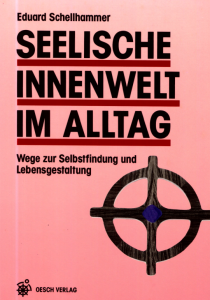 The Spiritual Inner World in Everyday Life
The Spiritual Inner World in Everyday Life
Within each of us resides the entirety of human experience, influencing and moulding our lives. Uncovering the wisdom concealed within our dreams can be a profound source of guidance, serving as a beacon on our life’s journey. This book unravels the immense power held within our imagination, illustrating the incredible potential it offers when harnessed correctly. It explains the immense inner potential that all humans possess within their imagination and the path to improving our environment lies squarely with us—every single one of us. This guide is a compass designed for those who seek to channel their courage and initiative into purposeful and impactful action. It is an invitation to all who aspire to make a positive and deliberate difference in the world.
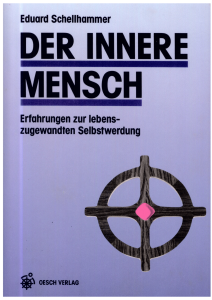 The Inner Man
The Inner Man
To usher in a new world, individuals must embark on a profound journey of self-renewal. This book revolves around a compelling premise: the external reality we witness is often a mirror reflecting our inner psychological landscapes. It boldly asserts that destiny is not set in stone, for the way we live shapes our fate.
The book challenges conventional thinking by emphasizing that the path to a new future commences with introspection and hinges on unwavering mental acumen. It serves as a guide to self-renewal, offering a fresh perspective on life and the boundless potential within each of us.
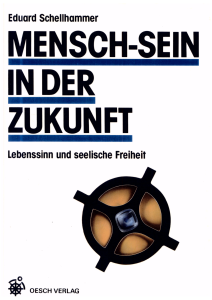 Being Human in the Future
Being Human in the Future
This book unveils humanity’s noble journey towards enlightenment, emphasizing that this growth should never stagnate, even though it can be challenging. As readers progress through its pages, they will discover a profound truth: mental freedom is attainable by all. Many individuals carry the heavy burden of a past that binds them, unaware that spiritual freedom lies within their reach. The book invites readers to explore the essence of existence, sparking a process of self-awakening. As you become more attuned to your unique individuality, you unlock holistic freedom and the path to a harmonious life. Ultimately, it sheds light on the central theme of life itself, challenging conventional notions of existence and leading to self-discovery. By seeking meaning within, it opens doors to a life marked by peace, quality, well-being, and love. This book is a testament to the possibility of achieving mental freedom, a message that resonates with every person.
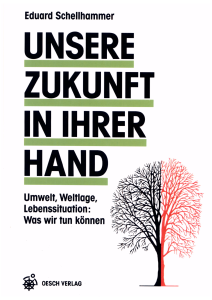 Our Future in your Hands
Our Future in your Hands
In our contemporary world, where concerns and fears are ever-present, the constant barrage of media reports on issues like air pollution, deforestation, violence, and conflict can leave us feeling overwhelmed. This book is built upon a fundamental premise: a balanced and composed individual approaches both nature and fellow human beings with respect and empathy. Conversely, someone who is mentally disordered and chaotic struggles to form connections with nature, grapple with their own identity, or fully embrace the sanctity of all life.
This book serves as a reminder that the path to a better world begins at the individual level. While it may be a challenging and lengthy journey, it remains the only viable route toward a future where each person gradually breaks free from isolation, superficiality, and resignation. By nurturing inner peace, we lay the groundwork for external peace, ultimately forging a brighter future for ourselves and the world.
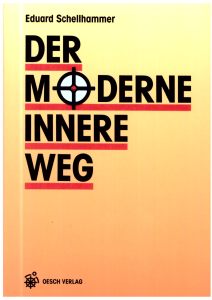 The Modern Inner Way
The Modern Inner Way
In a world where degradation of the environment, lack of respect for our limited natural resources, and the inharmonious relationship that mankind has with the environment can not continue.
This book stands as a beacon of hope explaining the importance of not losing our way in this myriad of turmoil and crises that surrounds us. It explains that the in depth personal development of each human is the unconditional requirement for global balance and peace.
HELPING SOCIETY THERAPEUTICALLY
In 1979 he opened his own in-depth psychological consulting practice and in 1982 founded “Life School” a centre for adult education. and created his own company called “Kairos Studien Verlag AG” which created teaching and learning materials for adult education. Due to his unquenchable thirst for knowledge, he visited the Managing director of the clinics, Dr. Walser for personal moderation and guided control analysis. These three years were of immense personal value as the knowledge he gained about humanity is mostly overlooked today.
Over the years in my consultancy in Zurich he was privileged to have the opportunity to assist many clients who searched for his help though a variety of techniques including:
- Group Therapy in psychotherapy, and psychoanalysis
- Meditation – which was a new idea in Switzerland, so people came to me to learn how to improve their personal meditation practice.
- Bioinformation Hypnosis – clients asked how this technique could help them with specific issues they had in their lives such as depression, fear, and anxiety.
- Dream-interpretation to understand one’s inner world.
- Energy rebalancing – This was a very successful anti-stress training program.
A NEW ADVENTURE IN SPAIN
Even after all the years that had passed and the success he had achieved, his heart still longed to return to France. He had always understood the importance of dreams, and in 1988 started to have recurring dreams and the strong premonition of World War Three looming over Europe. Driven by these dreams, he and his family spend a holiday in France seeking solace and reminiscing about the happiest time of his youth. They even searched for a home in Provence and schools for their children. Upon returning home an inexplicable event unfolded. At a time before the age of the internet and daily marketing bombardment, he received a brochure from a real estate agent in Marbella showcasing a beautiful house on the market. After much discussion with his wife, and in addition to his incessant dreams it seemed as if destiny was nudging him towards Spain, not France, to continue his life and studies for humanity there.
In 1992 he founded his consultancy called REATON CENTER in Centro Plaza near Marbella which was a school for psychology and philosophy. He created the name by merging the names of the two most important Egyptian Sun Gods Re/Ra, later to be known as Ra-Horakhty (the morning sun), and Aton, the evening sun, associated with primal life-giving energy. Later in 2009, he founded the Schellhammer Business School in Marbella, Estepona, and now the San Roque Club. He continued to write and publish many more books and articles to awaken the world on a variety of topics including Politics, Economics, Education, Philosophy, Dream Theory, Archetypes of the Soul, Destruction of the Planet, Religion, Evolutionary Human Development, and Psychology both for mainstream readers and experts alike. The newest of which are available in English as seen below:
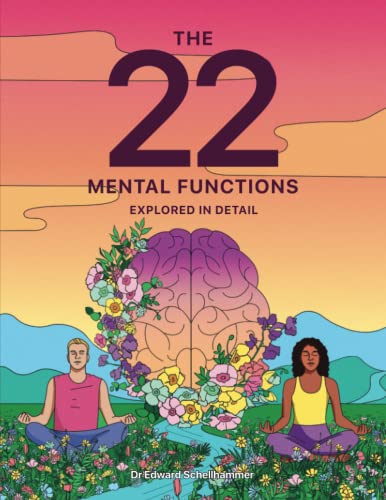
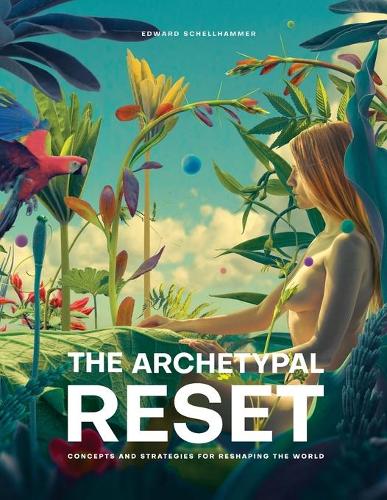
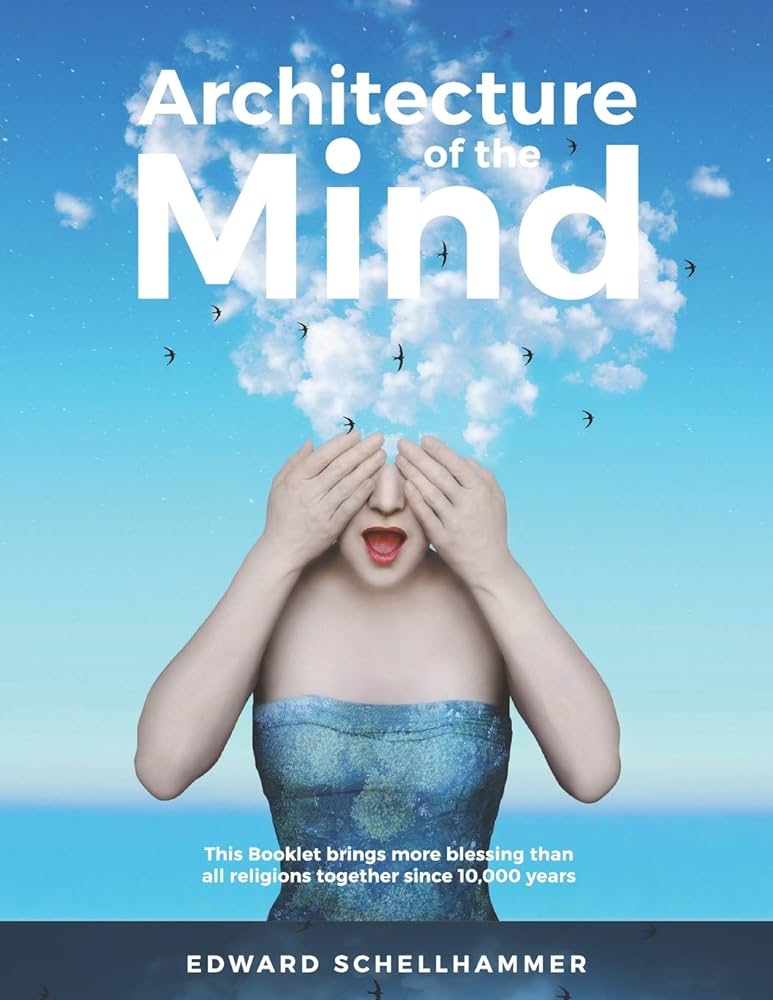
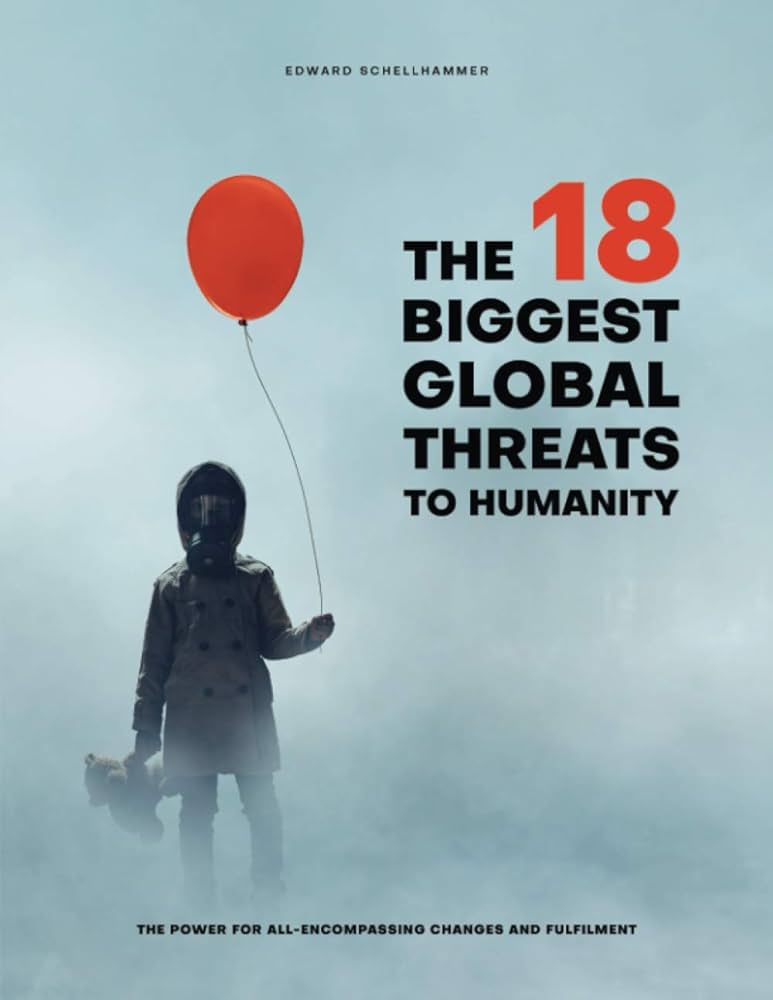
He has established a physical presence in Spain with the Schellhammer Institute, a think-tank for solutions to issues facing humanity, and educational programs for those who genuinely wish to lead the world into a better and brighter future. He is now ready to deliver our message to global leaders about the need for substitution and to go through a catharsis for a healthy mind and soul.
While he says he has lost much, insists that he has gained invaluable wisdom and insights that have lead him to create these series of programs as the new messenger, delivering to the world a new holy grail for humanity.